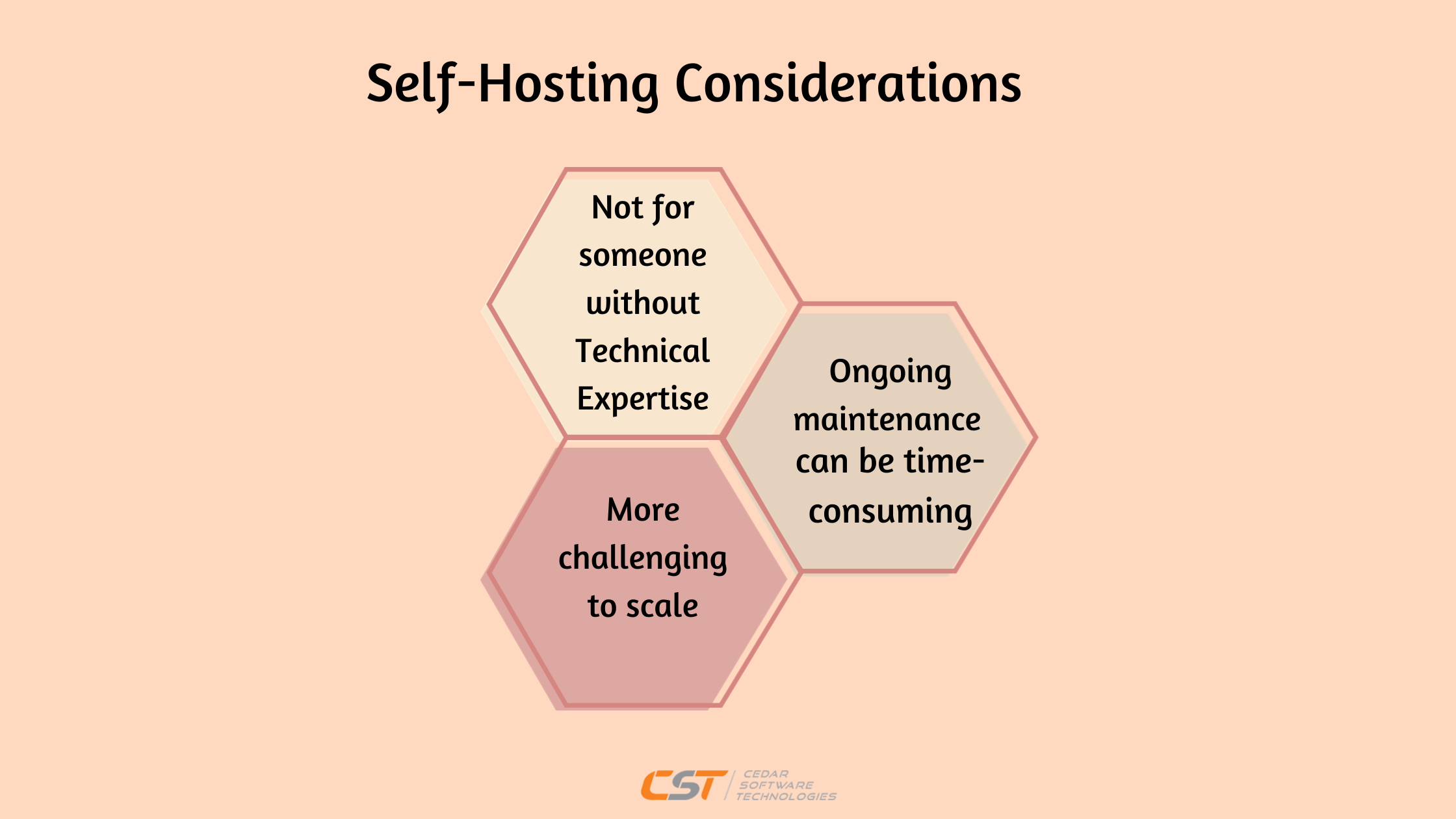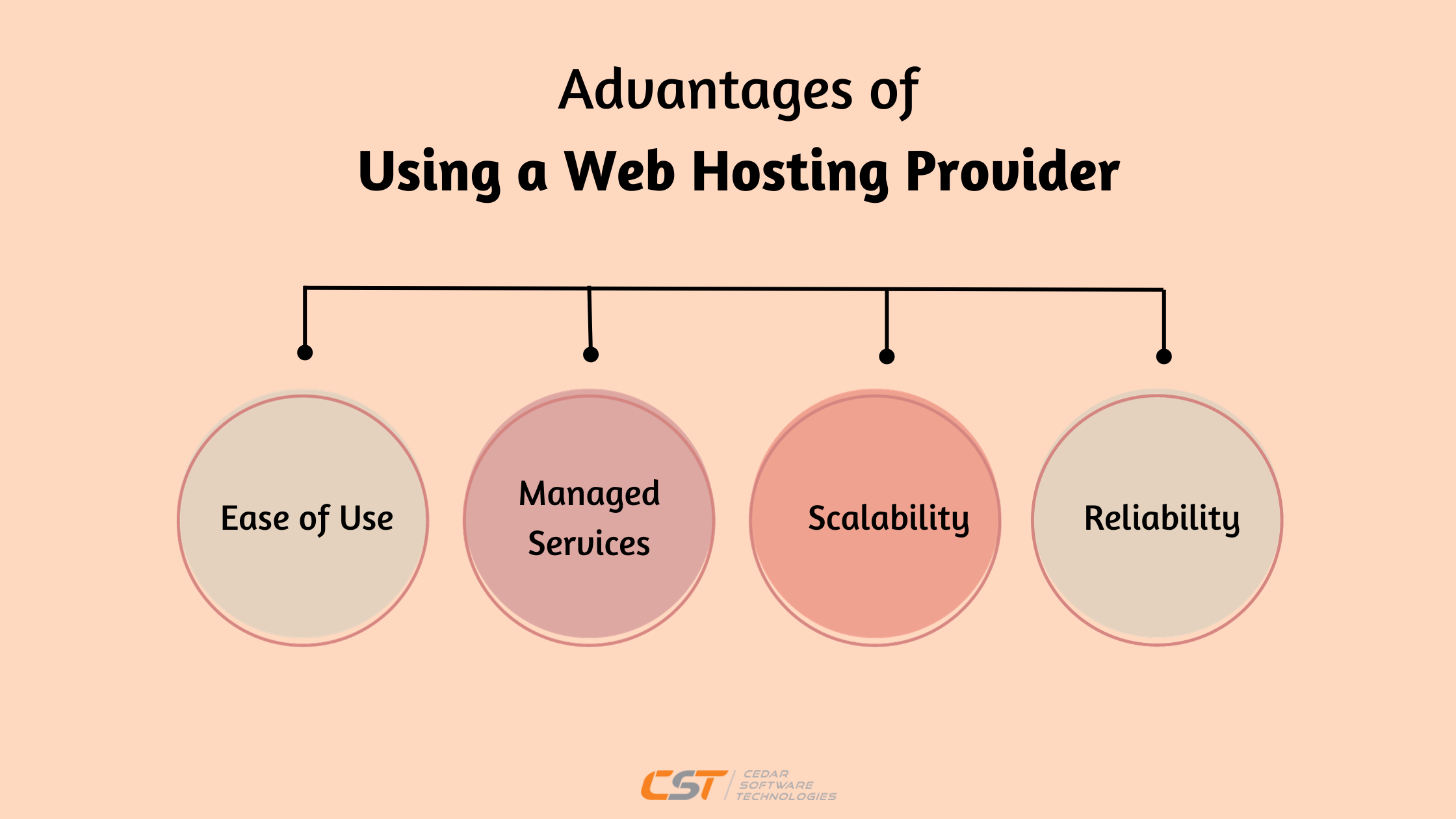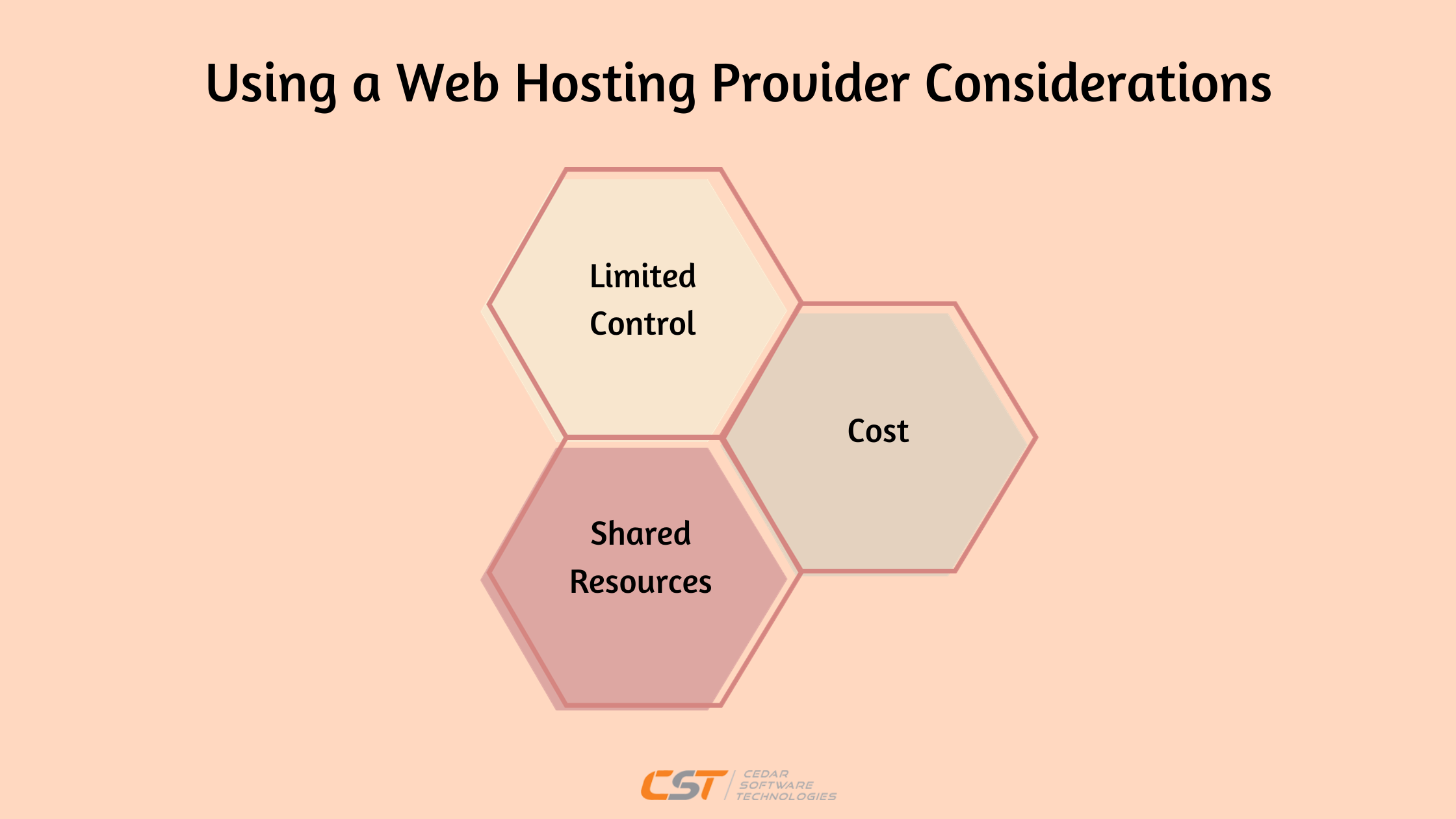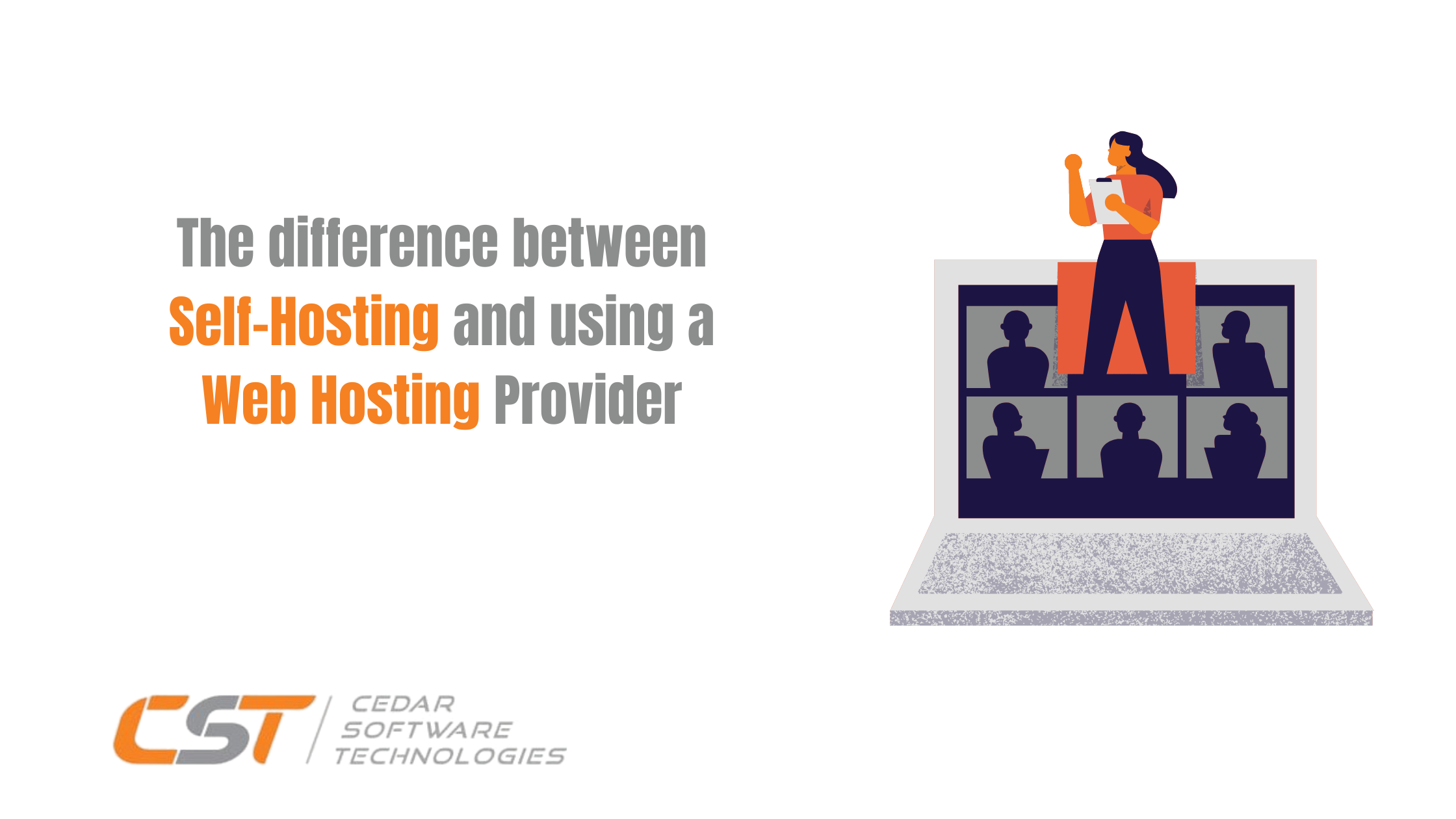Having an online presence is essential for individuals and businesses alike in this digital era! Be it for a personal blog, an e-commerce site, or a corporate website, you’ll need a dependable platform to host your website. Check out the difference between Self-Hosting and using a Web Hosting Provider before you take any decision. This insight is brought to you by Cedar Software Technologies, a leading web design company in Kochi.
Self-Hosting:
Hosting your website or application on your own infrastructure is called Self-hosting. Here you can manage all aspects of the hosting environment, from hardware to software and security.
Advantages:

Full Control: You get complete control over every aspect of your hosting environment & you can customise server configurations, software installations, and security settings as per your specific needs.
Cost Flexibility: Self-hosting can be cost-effective in the long run, especially for larger websites or applications even though there are upfront costs for purchasing and setting up hardware and software.
Performance: As you can fine-tune your infrastructure to suit your needs with proper configuration and optimisation, self-hosting can provide better performance eventually.
Privacy and Security: You can implement security measures tailored to your requirements, potentially resulting in a higher privacy level and security for your data with self-hosting.
Considerations:

Technical Expertise: Self-hosting might not be suitable for individuals or businesses lacking technical expertise as it needs a good understanding of server management, security practices, and networking.
Maintenance: Ongoing maintenance tasks, including updates, backups, and troubleshooting need to be done regularly which can be time-consuming and complex.
Scalability: It can be more challenging to scale a self-hosted website or application. It necessitates procuring and configuring additional hardware as traffic increases.
Using a Web Hosting Provider:
This requires renting server space and resources from a third-party company that specialises in hosting services. All technical aspects of server management are handled by them.
Advantages:

Ease of Use: As most Web hosting providers offer user-friendly interfaces and management tools,it becomes accessible even for those with limited technical expertise.
Managed Services: Most routine maintenance tasks, security updates, and backups are taken care of by the hosting providers which reduces the burden on website owners.
Scalability: You can upgrade resources when your website’s traffic grows as most hosting providers offer scalable plans.
Reliability: Hosting providers of repute offer reliable uptime and performance, backed by extensive infrastructure and technical support.
Considerations:

Limited Control: Even though hosting providers offer customization options, you might not get the same level of control over server configurations and software as with self-hosting.
Cost: Long-term costs can accumulate, especially for resource-intensive websites nevertheless starting with a hosting provider is generally less expensive upfront.
Shared Resources: Sharing server resources with other users can happen with some lower-cost hosting plans and this impacts performance during high-traffic periods.
In effect, choosing between self-hosting and using a web hosting provider depends on your technical expertise, budget, and specific needs. Contact us at Cedar, the best Digital Marketing Agency in Kochi to know more.
